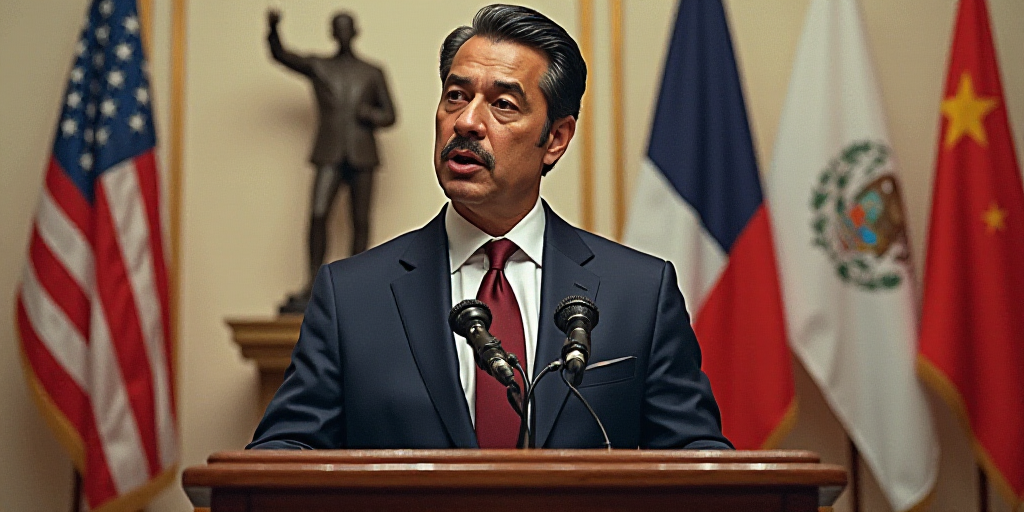Background on President Rodrigo Chaves
Rodrigo Chaves, the 64-year-old president of Costa Rica and an economist and politician, is at the center of a controversy involving alleged interference in the ongoing political campaign for the 2026 elections. The Tribunal Supremo de Elecciones (TSE) has requested the Congress to lift Chaves’ constitutional immunity to pursue charges against him for supposed political bellicosity, which refers to his involvement in electoral matters despite the prohibition that mandates officeholders not to express opinions about candidacies or parties and to suspend government propaganda.
TSE’s Decision and Chaves’ Response
The TSE compiled 15 of the 24 accusations against Chaves into a single case, alleging his political bellicosity. This could potentially lead to Chaves’ removal or ineligibility for future public offices, as per Juan Luis Rivera, a legal representative of the TSE. In Costa Rica, presidents cannot be immediately re-elected.
Chaves has accused the TSE of political partiality and attempting to silence him by enforcing the suspension of all government propaganda in traditional and social media channels. He claims this is unprecedented.
Election Climate and Public Opinion
The election campaign is unfolding amidst high uncertainty, weariness of traditional parties, fragmentation of opposition groups, and polarization between Chaves’ critics and supporters. According to a September survey by the Universidad de Costa Rica (UCR), Chaves’ supporters constitute 52% of the population.
The elections will take place against a backdrop of insecurity caused by the rise in drug trafficking, which has resulted in record homicide rates in a country previously regarded as one of the safest in the region.
The public opinion study indicates that the official candidate, Laura Fernández, has an initial advantage but insufficient support to win in the first round. Voters will also elect 57 Congress members for the 2026-2030 term during these elections.
Key Questions and Answers
- Who is Rodrigo Chaves? Rodrigo Chaves is the 64-year-old president of Costa Rica, an economist and politician.
- What is the controversy about? The Tribunal Supremo de Elecciones (TSE) accuses Chaves of political bellicosity, or interfering in electoral matters despite constitutional prohibitions.
- Why is the TSE seeking to lift Chaves’ immunity? The TSE wants to pursue charges against Chaves for the alleged interference in the 2026 election campaign.
- What are the potential consequences for Chaves? If found guilty, Chaves could face removal or ineligibility for future public offices.
- What is the current political climate in Costa Rica? The country faces high uncertainty, weariness of traditional parties, fragmented opposition, and polarization between Chaves’ critics and supporters.
- What challenges do the upcoming elections present? The elections will occur amidst rising insecurity due to drug trafficking and its impact on homicide rates. Additionally, the official candidate, Laura Fernández, needs to secure a majority in the first round to win the presidency and elect 57 Congress members.






